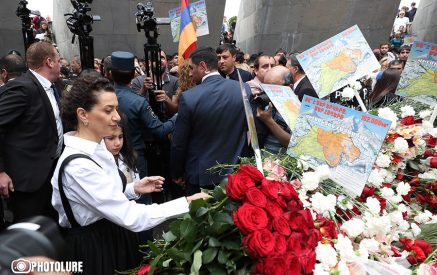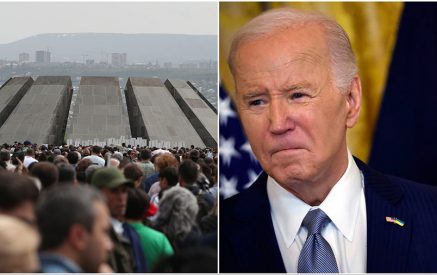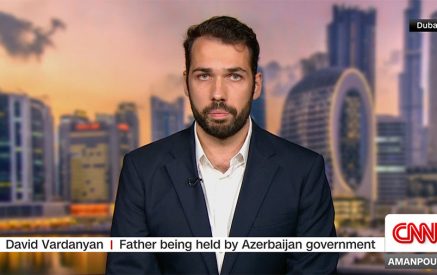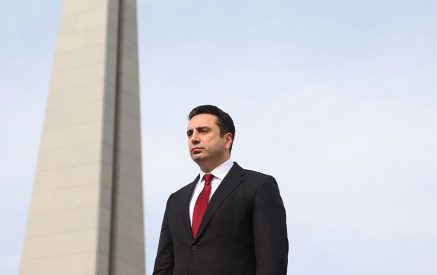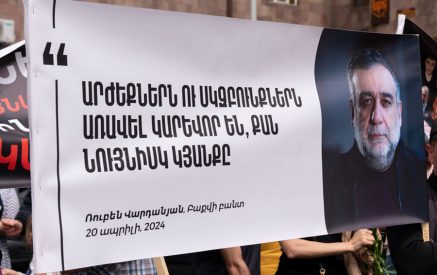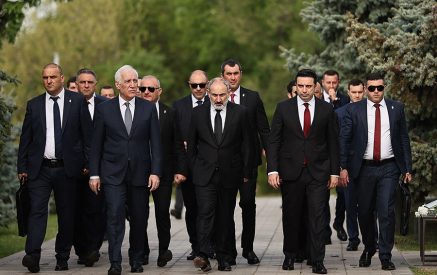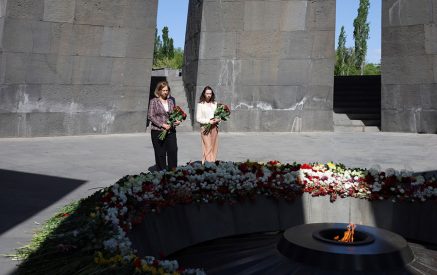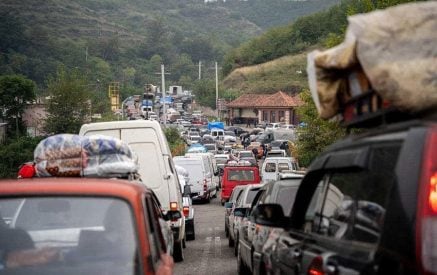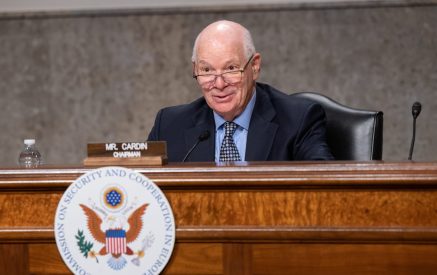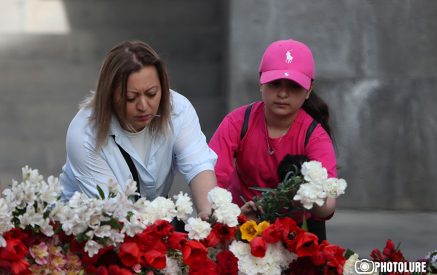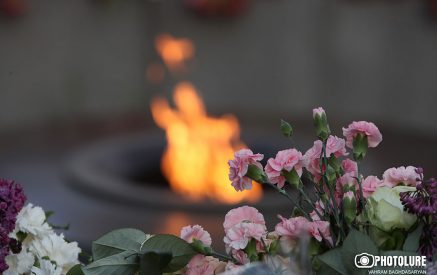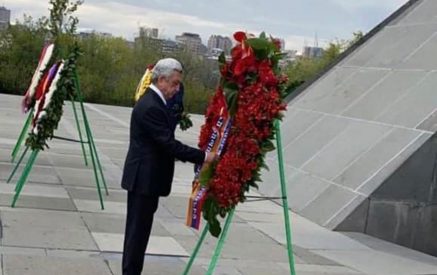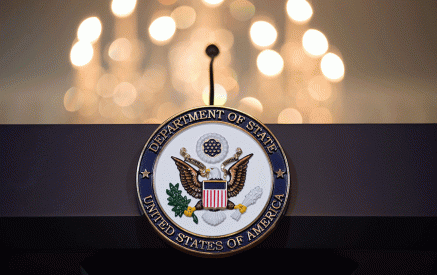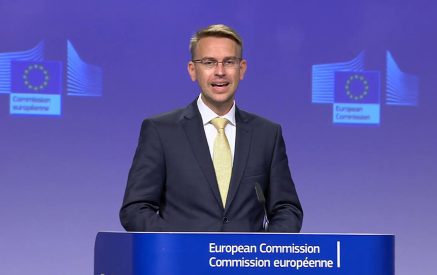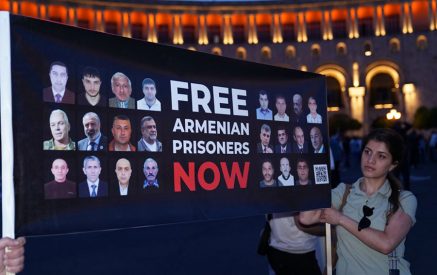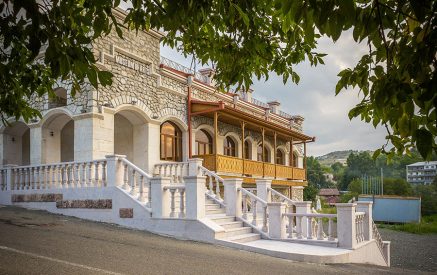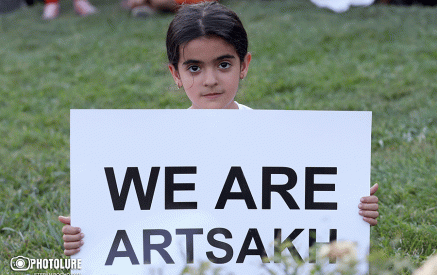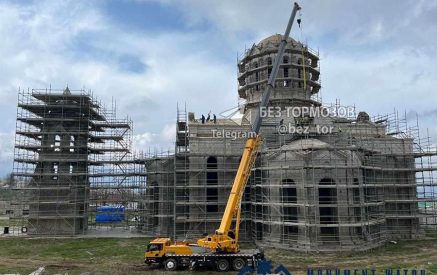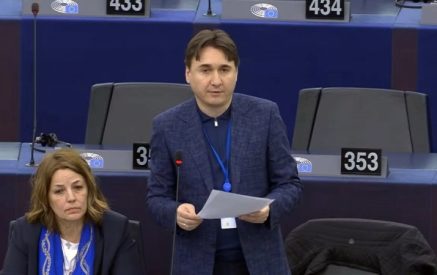One week after the conclusion of the August 16th emergency meeting of the United Nations Security Council (UNSC) to discuss the dire humanitarian crisis in Nagorno-Karabakh (also known as Artsakh), AGBU’s leadership decided to send an Urgent Letter of Appeal to each of the 15 member representatives, including Albania, Brazil, China, Ecuador, Gabon, Ghana, France, Japan, Malta, Mozambique, Russia, Switzerland, United Arab Emirates, United Kingdom, United States, as well as to the Delegation of the European Union to the UN in New York.
The main message therein was a bold request: Start calling Azerbaijan’s blockade of the Lachin Corridor what human rights experts and international agencies are now defining as Genocide.
“By officially and publicly defining Azerbaijan’s actions as genocidal, the UN member states can invoke the UN Convention on Genocide and take bold measures at its disposal to prevent and punish acts of Genocide through the International Court of Justice. It can also execute other strategic actions to meet its obligation to respond to situations where Genocide is a genuine threat,” AGBU President Berge Setrakian stated in the appeal.
These letters build on an urgent appeal from AGBU to U.S. Secretary of State Antony Blinken on August 10th. In that communication, Setrakian urged the United States to heed the warnings of an explosive report issued by Luis Moreno Ocampo, a world- renowned authority on human rights violations. Ocampo made a compelling case for calling the crisis in Nagorno-Karabakh an imminent Genocide. The letter urged Secretary Blinken to intervene to ensure the Lachin Corridor was opened to allow the flow of humanitarian aid, on the ground, or, in the interim, via airlift, per the report’s warning that mass starvation was a matter of a few weeks away.
Read also
Adding to Ocampo’s analysis, on August 23rd Former Special Advisor to the Secretary-General on the Prevention of Genocide and Professor of Human Rights Law of the American University (Washington, D.C.) Juan Mendez made a presentation to the member states that had reconvened to further address the crisis. Professor Mendez focused on the prevention duty of the international community by highlighting the facts that constitute sufficient reason to proffer an early warning to the international community that the population of Nagorno-Karabakh is at risk of suffering “serious bodily or mental harm to members of the group” as defined in Article 2 of the Convention on the Prevention and Punishment of Genocide.
The AGBU appeals were sent to the Security Council members, with copies to their respective foreign ministers, not only reinforcing the findings of both Ocampo and Mendez, but also urging the United Nations to immediately intervene to lift the blockade and stop the widespread food insecurity in Nagorno-Karabakh. “The time is now to back up words with actions such as rushing humanitarian aid, on the ground, or in the interim, via airlift, to alleviate the immediate threat of Genocide by starvation and disease,” urged Setrakian in the letter.
In a recent interview with AGBU, Sheila Paylan, a public international law and human rights expert with more than 15 years of experience working for the United Nations as an advisor, cited the UN Convention on the Elimination of All Forms of Racial Discrimination as “one of the most important international treaties, because racial discrimination can lead to ethnic cleansing.”
Paylan went on to say: “To the extent that, for example, [the blockade] is causing a humanitarian crisis, in fact, bringing us to the brink of ethnic cleansing and disturbs or threatens international peace and security in the region, the UN Security Council is vested with not only the power, but the responsibility to intervene immediately when something like that happens.”
Setrakian put AGBU’s efforts to sound the alarm into a wider perspective. “Azerbaijan is behaving as a rogue UN member state that has been boldly violating UN conventions and international human rights laws. It is flouting the world order that the United Nations was established to uphold. It is sending a dangerous signal to other states that they too can commit crimes against humanity with impunity.”
Despite the amplification of international concern for the fate of the 120,000 Armenians of Nagorno-Karabakh, AGBU France in coordination with Mayor of Paris Anne Hidalgo and the French regions of Ile-de-France, Auvergne-Rhône-Alpes, Hauts-de-France, Occitania and Pays de la Loire spearheaded an effort to send humanitarian aid and food from Yerevan to Nagorno-Karabakh. The delegation was equipped with 10 trucks of humanitarian aid for those affected by Azerbaijan’s blockade of Nagorno-Karabakh, who are now allocated only a half a loaf of bread per day due to the severe food shortage. The convoy was blocked by Azeris from entering.
Over Twitter, the Mayor testified: “Here at the Lachin Corridor we testify that no humanitarian aid can enter Artsakh, in total violation of human rights. Our 10 humanitarian aid trucks are blocked. A humanitarian crisis is underway, there is urgency.” Later, at a press conference, Mayor Hidalgo stated: “We are more determined than ever to carry the voice of international law, the voice of Armenia. She added: “The peace process, endorsed in the 2020 agreements, must be respected. This is the condition of their survival, at a time when Azerbaijan is trying to hide its genocidal ambitions.”
The Armenian General Benevolent Union (AGBU)





































